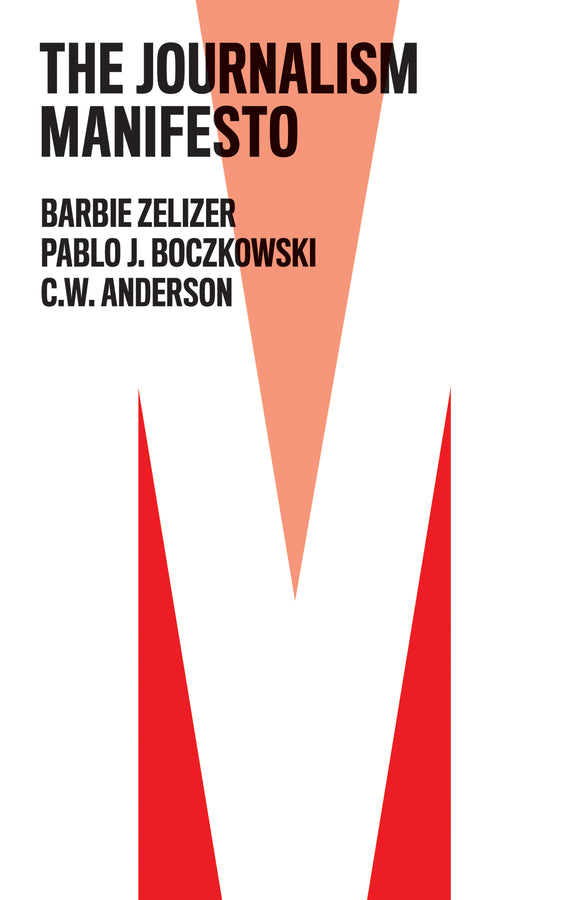Description
Discover 'The Journalism Manifesto,' a crucial read for anyone passionate about the evolution of journalism in today's dynamic media landscape. This insightful book, published by John Wiley & Sons in 2021, draws on the collaborative expertise of esteemed scholars Zelizer, Boczkowski, and Anderson to explore the pressing need for a transformative approach in journalism. As traditional sources and norms become outdated, the authors highlight how journalism has increasingly become disconnected from the realities of modern society. Delve into the intricate relationship between elites, norms, and audience dynamics, and understand why the journalism landscape requires a significant overhaul. With 140 pages rich in analysis and perspective, this manifesto serves as a compelling guide for students, media professionals, and anyone invested in democratic discourse. Dive deep into the discussion on how to revitalize journalism while ensuring it meets the challenges posed by fractured audience perceptions and dysfunctional norms. Together, we can envision a future for journalism that's robust, relevant, and democratic. Note: Shipping for this item is free. Please allow up to 6 weeks for delivery. Once your order is placed, it cannot be cancelled. Condition: BRAND NEW. ISBN: 9781509542642. Year: 2021. Publisher: John Wiley & Sons (UK). Pages: 140.
Note: Shipping for this item is free. Please allow up to 6 weeks for delivery. Once your order is placed, it cannot be cancelled.
Condition: BRAND NEW
ISBN: 9781509542642
Year: 2021
Publisher: John Wiley & Sons (UK)
Pages: 140
Description:
Drawing on the collaborative expertise of three senior scholars, The Journalism Manifesto makes a powerful case for why journalism has become outdated and why it is in need of a long-overdue transformation.
Focusing on the relevance of elites, norms and audiences, Zelizer, Boczkowski and Anderson reveal how these previously integral components of journalism have become outdated: Elites, the sources from which journalists draw much of their information and around whom they orient their coverage, have become dysfunctional; The relevance of norms, the cues by which journalists do newswork, has eroded so fundamentally that journalists are repeatedly entrenching themselves as negligible and out of sync; and because audiences have shattered beyond recognition, the correspondence between what journalists think of as news and what audiences care about can no longer be assumed.
This authoritative manifesto argues that journalism has become decoupled from the dynamics of everyday life in contemporary society and outlines pathways for fixing this essential institution of democracy. It is a must-read for students, scholars and activists in the fields of journalism, media, policy, and political communication.
Note: Shipping for this item is free. Please allow up to 6 weeks for delivery. Once your order is placed, it cannot be cancelled.
Condition: BRAND NEW
ISBN: 9781509542642
Year: 2021
Publisher: John Wiley & Sons (UK)
Pages: 140
Description:
Drawing on the collaborative expertise of three senior scholars, The Journalism Manifesto makes a powerful case for why journalism has become outdated and why it is in need of a long-overdue transformation.
Focusing on the relevance of elites, norms and audiences, Zelizer, Boczkowski and Anderson reveal how these previously integral components of journalism have become outdated: Elites, the sources from which journalists draw much of their information and around whom they orient their coverage, have become dysfunctional; The relevance of norms, the cues by which journalists do newswork, has eroded so fundamentally that journalists are repeatedly entrenching themselves as negligible and out of sync; and because audiences have shattered beyond recognition, the correspondence between what journalists think of as news and what audiences care about can no longer be assumed.
This authoritative manifesto argues that journalism has become decoupled from the dynamics of everyday life in contemporary society and outlines pathways for fixing this essential institution of democracy. It is a must-read for students, scholars and activists in the fields of journalism, media, policy, and political communication.

